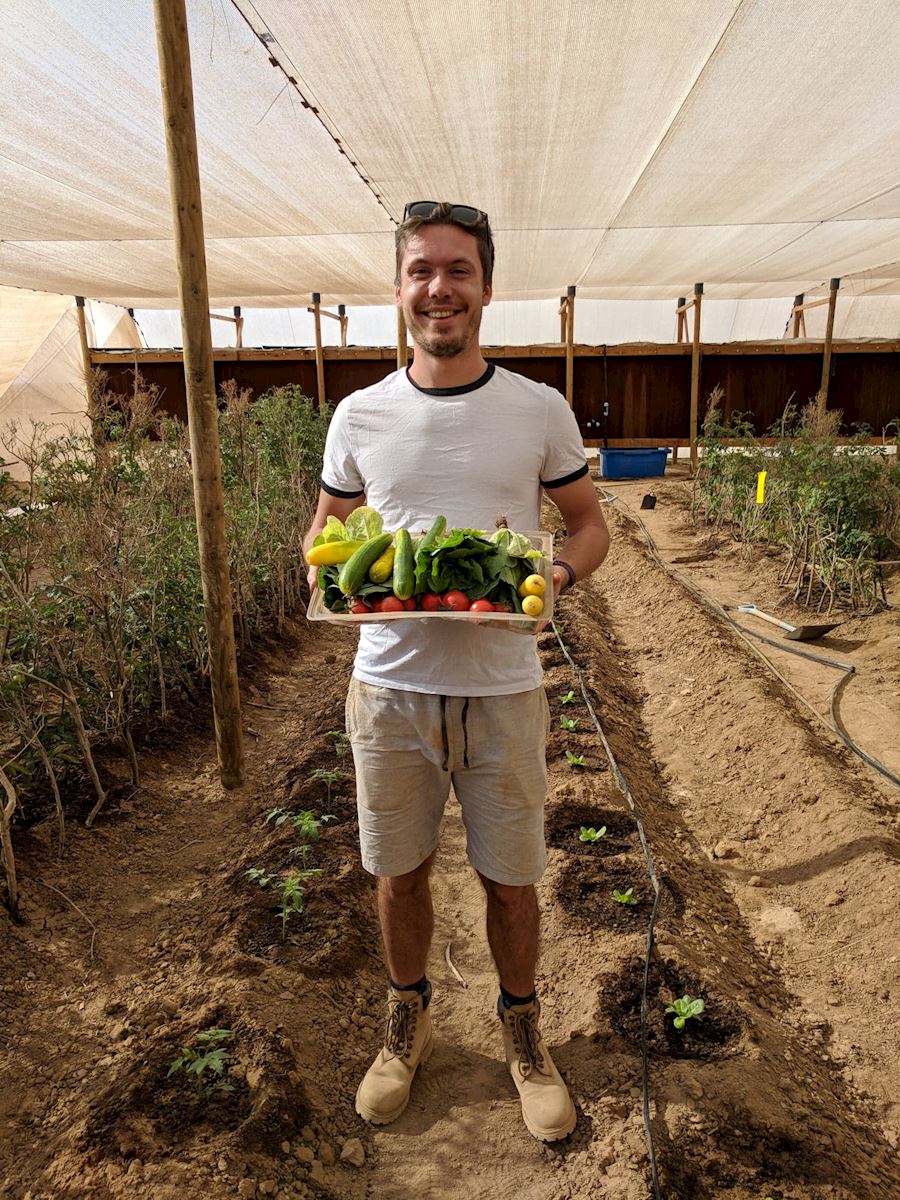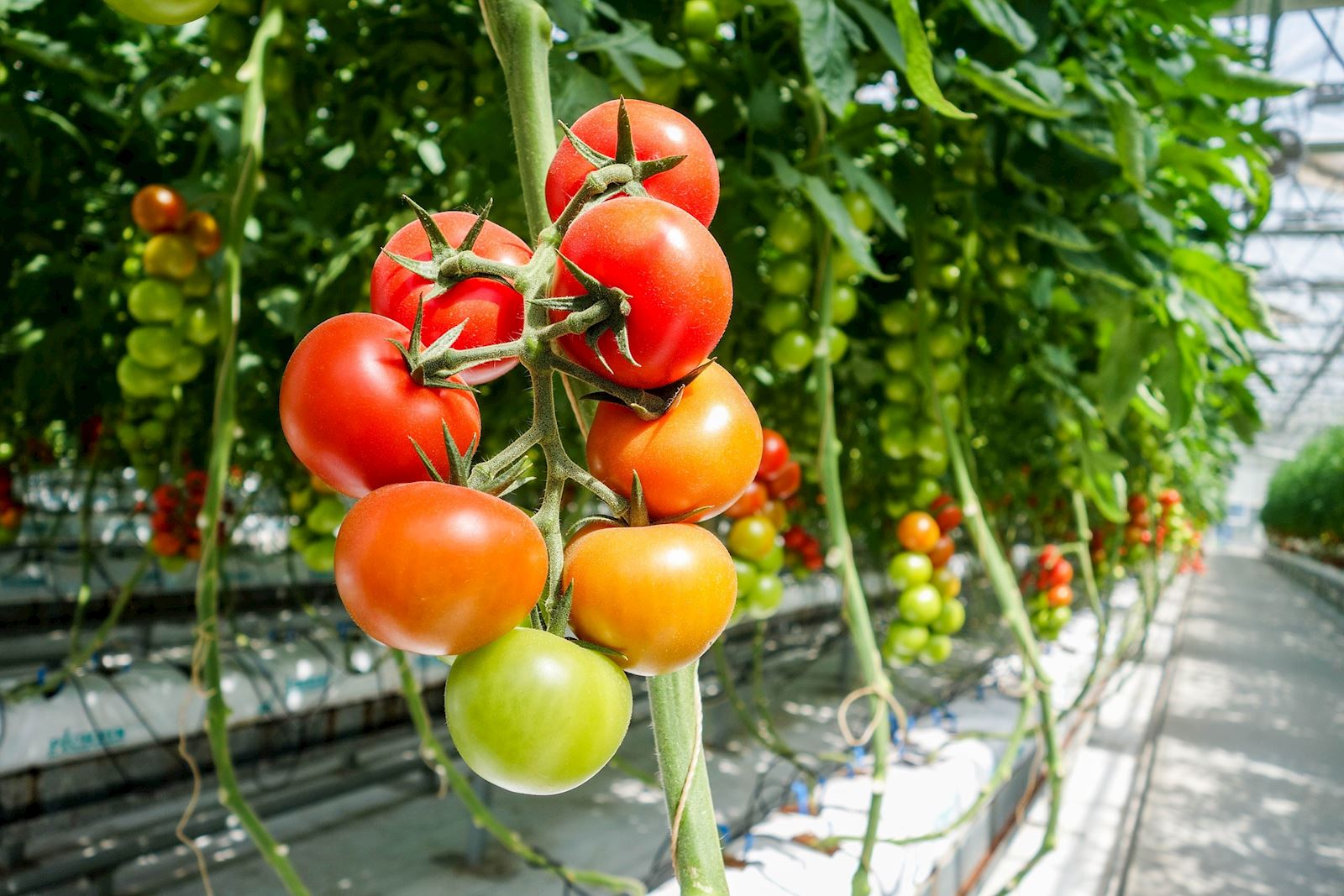From Death Threats to Tomatoes
How a frightening experience in Somaliland inspired Chris Rothera’s new business in Oman
Chris Rothera
Before dawn on 25 January 2018. Berbera, Somaliland. My security team bundle me into a car. We set off at speed on a 100 mile drive across the desert to the nearest international airport at Hargeisa. Minutes after we arrive, I breathe a sigh of pure relief as the 737 leaves the ground. I’m alive. I’m on my way home.
But as I flew out of Hargeisa that day, as well as relief, I felt huge excitement. I knew that I had struck on a great business idea. I had already known that high quality fruit and vegetables could be grown in the desert in climate-controlled greenhouses. The big insight from my Somaliland experience was that, with a new design approach, those greenhouses could be built for much less money than anyone thought. Low capital cost was the golden key that had eluded others and I now knew that it was achievable.
I had spent much of the previous year in Somaliland building two proof-of-concept greenhouses. My brief had been to bring together three well-established technologies – reverse osmosis desalination, solar PV power and evaporative cooling – in an off-grid greenhouse, and to grow high quality fruit and vegetables in the harshest of environments without using any fresh water, just seawater and sunlight. But I had to do this at the lowest capital cost possible.
The greenhouses were built and they worked. We grew great tasting, great looking crops. But, although we had secured all the required permissions, local pastoralists didn’t like what we were doing. They saw it as a threat to their traditional way of life. Their response was intimidation and, ultimately, death threats to me as the leader of the project. I had to get out of Somaliland – and in a hurry!
Over the last 20 years, new technology has brought continuous improvement to the growing of fruit and vegetables in arid regions using climate-controlled greenhouses. For example, there is an innovative greenhouse operator in the UAE making extensive use of “Internet-of-things” monitoring and control equipment. Another in Australia claims to supply 15% of the domestic market for tomatoes from its 20 hectare facility in near-desert, close to Adelaide.
But these existing operations, using state-of-the-art greenhouses, have required such large capital investments that it is difficult to see how they could ever give investors good returns or scale-up on a global basis. Their greenhouses and supporting infrastructure are just too expensive.
What I learned in Somaliland was that there is a way to grow high quality fruit and vegetables sustainably in an arid environment, at a low unit cost, using just seawater and solar power, with only a comparatively modest capital investment. A way to be highly profitable, taking into account all the costs – including the initial investment.

Just a few months after that flight from Hargeisa, with my brother, David, also an engineer, I founded Canopy Farms Limited. Our aim: to grow high quality fruit and vegetables cheaply and sustainably in arid regions of the world and to displace high-priced imports in domestic food supply chains. But we aim to do this at a sufficiently low capital cost that investor returns should be very high. And our secret for achieving this: adopting a greenhouse design approach between the cheap-as-possible Somaliland model and the highly expensive solutions of others in this field.
We have chosen Oman as our launch territory. For its ideal meteorological conditions but also for its stability and strong pro-business environment.
We will soon be building our R&D facility on the Omani coast. That will be followed by the first 10 hectare commercial facility, producing between 2,100 and 2,500 tonnes of high quality, fresh fruit and vegetables every year – to be enjoyed by shoppers in Omani supermarkets.
Not only do we think Canopy will be a great and highly profitable business, expanding in time beyond Oman to arid regions around the globe. Not only will Omani consumers love our produce but we will be helping Oman and its government with key social and economic objectives. Food security. Water security. Green energy adoption. Import substitution. Creating high quality, local jobs. Contributing to GDP.
Also, in this year when Covid-19 has taught us all the fragility of global supply chains, local food production is moving up the agenda. By accident rather than design, Canopy finds itself very much in line with the global imperative to source locally.
As I left behind the death threats that day in 2018, it was with huge relief. Now, as I look forward, I know that all I learned about sustainable greenhouses in Somaliland will be put to good use as Canopy grows its exciting new business in Oman.
